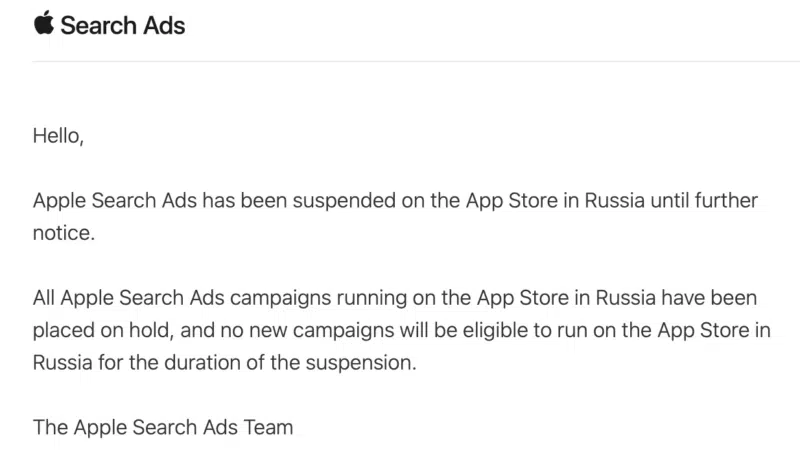Platforms that have suspended ads in Russia
In addition to political and economic sanctions, the conflict in Ukraine has prompted many crucial platforms to cut off advertiser access to Russian audiences.
Russia’s actions in Ukraine have prompted ad suspensions from nearly every platform that search marketers rely on to reach Russian audiences. At first, companies such as Google, Microsoft and Facebook started by restricting ads from Russian state media, but as the conflict continued, many have expanded those suspensions to include all ads that would be served to users in Russia.
Below is a list of platforms and their current policies with regard to the conflict in Ukraine. We will update this resource as platforms update their policies.
Search engines. Google and Microsoft Bing, the two leading search engines globally, have both suspended all ad sales in Russia.
- Google: On February 27, Google suspended ads from Russian state-owned media outlets. On March 3, the company expanded the suspension to include all ads serving to users in Russia.
- Microsoft: On February 28, Microsoft banned ads from Russian state-owned media outlets. On March 4, the ban was expanded to include all new sales of Microsoft products and services (not just ads) in Russia.
Microsoft Advertising powers ads on Bing, DuckDuckGo, Yahoo! and AOL, so brands currently cannot advertise to users in Russia on those platforms either. While Apple doesn’t operate a search engine, it has suspended Search Ads on the App Store in Russia.

Yandex, which is headquartered in Moscow and the second-most-popular search engine in Russia, is still operating normally.
Social media platforms. Most social media platforms have also rolled out ad suspensions similar to the ones mentioned above.
- Meta: Facebook’s parent company paused ads targeting users in Russia on March 4. Several days prior, the Russian government announced that it would block its citizens from accessing Facebook, so ads may not have reached users anyhow. The company has not announced whether these changes will also apply to Instagram, but Meta has banned Russian state media from running ads or monetizing on any of its platforms.
- LinkedIn: LinkedIn is owned by Microsoft and is therefore included in the company’s ban on sales of its products and services in Russia.
- Twitter: On February 25, Twitter paused ads serving to users in Ukraine and Russia, citing the need to “ensure critical public safety information is elevated and ads don’t detract from it.”
- Reddit: On March 2, Reddit announced that it is not accepting advertisements “that target Russia or originate from any Russia-based entity, government or private.” The platform has also blocked links from all domains ending in “.ru,” Russia’s country code top-level domain.
- Snap Inc.: Snapchat’s parent company has stopped all advertising running in Russia, Belarus and Ukraine, the company announced on March 1.
- TikTok: TikTok has restricted access to Russian state-controlled media accounts, but it appears it has not stopped serving ads to users in Russia.
Why we care. Platforms are responding to the conflict in Ukraine by halting ads as a means to cut down on noise and misinformation, promote the right sources of information and avoid potential brand safety issues. Unfortunately for brands and their audiences in Russia, this also means that there are fewer channels they can use to reach those customers. Knowing which channels are still available to you can help mitigate the impact of these ad suspensions.
Contributing authors are invited to create content for Search Engine Land and are chosen for their expertise and contribution to the search community. Our contributors work under the oversight of the editorial staff and contributions are checked for quality and relevance to our readers. The opinions they express are their own.
Related stories
New on Search Engine Land